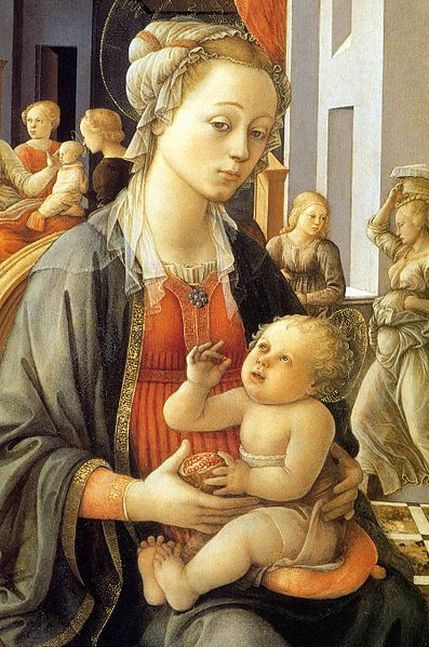|
Mimicry
“More like the sitter than the sitter herself,” Raphael declared of a Lippi Madonna. The living may seek their own perfection but never find, the painter implied, the way a mother cannot hold a child close enough to keep it from all harm though that be a woman’s deepest desire. The sun would never glare in her child’s eye, for she? She would never turn away. But Maria, Madonna’s model, is hungry and imagining pears, with none like herself seeing herself in any way than what she is, at least in her own eyes. Where else would art find its light to launch itself above our shade than in a beauty bound to be nevermore, with nothing else like it when it lived? Lines etch themselves beneath our eyes. Art though in lines finds no such doom once freed from the tomb of the artist’s hands. It photoshops a shadow in the blank march of days that flicker by us on our way, a flock of birds frozen in the sky, a sun blinding us by other means. Sometimes we see the fatty hand of art loom over the hand, or a portrait not with the gait of any man that lived, a limp counterfeit of humanity, as Hamlet says. Sometimes we awake to find we’ve been actors in our own skin. That’s when death or love throws out art, and we find ourselves sitting in a park on a cold slab crying hot tears, a sad clown, our mascara dripping, or frozen like a stone, freed by death from having to act another’s part. Will we care then if nobody comes by to offer a word, remark on how we look, place a flower just so turned to the light? It could be a common one, not even bought, a violet plucked from a garden where a crow seemed to mock our hand for its secret theft. Anthony DiMatteo This poem previously published by Levure Littéraire. Anthony DiMatteo's recent poems and reviews have sprouted in the Cortland Review, Hunger Mountain, Los Angeles Review, Verse Daily, and Waccamaw. His current book of poems In Defense of Puppets has been hailed as, "a rare collection, establishing a stunningly new poetic and challenging the traditions that DiMatteo (as Renaissance scholar) claims give the poet 'the last word."(Cider Press Review).
0 Comments
Your comment will be posted after it is approved.
Leave a Reply. |
The Ekphrastic Review
COOKIES/PRIVACY
This site uses cookies to deliver your best navigation experience this time and next. Continuing here means you consent to cookies. Thank you. Join us on Facebook:
Tickled Pink Contest
April 2024
|




